Elleck jolted upright and leaned for an instant on the arm of his chair, before discovering that his chair didn’t have any arms; somehow, by clutching onto a leg, he managed to prevent himself from falling completely onto the floor, and dropped his cigar in the process. He leaned over to pick it up, and shouted out in pain; his finger and thumb had picked it up by the lighted end by mistake. He looked quizzically at his host.
‘You see, Monty,’ said Lasserre, ‘Osirak was no good. It was all over — poof! — so quickly. They fly out of the sky, blow up the power station — and then they are gone again, and that was that. Lots of noise in the press for a few days, and then all over. The world is used to acts of terrorism, and that was just one more — although on a fairly large scale. And you know — how many people care about Iraq? Iraq doesn’t mean anything to most people. No. What is needed is something that will matter to the whole world — something that will threaten the peace of the whole world — bring it right to the very brink of war. Right to the very brink. That is what is needed. That is what will push up the price of gold, but really push it up. Right, Monty?’
Elleck felt a chill listening to the Viscomte’s words. There was something about this whole evening — this extraordinary chateau, the bent Greek, the sincerity with which the Viscomte was talking. All his life, Elleck had taken steps to ensure that he only played in the ‘A’ team. Well here he was, as usual playing in the ‘A’ team, and he decided that tonight he might have been distinctly more at ease had he been playing in something lower down the league. ‘And how do you propose going about bringing the world to the brink of war, Claude?’
Lasserre picked his brandy punt up gently in the palm of his right hand; he stared down into the gold liquid for several moments, lifted the punt to his lips, took a small sip, held the brandy in his mouth for some moments, and then swallowed. He looked across at Elleck. ‘We have already started,’ he said.
There was a silence that lasted for nearly a full minute. The Viscomte passed it by lowering his nose into his punt and inhaling the fumes of the elderly brandy several times, slowly and deeply. Culundis passed it by examining first the end of his cigar which had half an inch of ash on; secondly, the end of his cigar which had half an inch of damp slobber; and then the space in between. Elleck passed it without removing his eyes from a point, on one of the open French windows, that was about six inches to the left of the Viscomte’s face; about halfway through the minute, he rolled his cigar over, once, in the ashtray. He had absolutely no doubt that the Viscomte meant what he said, and from what he knew of the Viscomte’s attitude to life and to people, he knew that the Viscomte was cold enough and ruthless enough to carry it out. From his short acquaintance with Jimmy Culundis, and from what he had read about him on the many occasions his name had appeared in the world press in the past, he had little doubt that Culundis had come from a similar mould. He tried to consider the significance of what the Viscomte had said, but he found he was unable to concentrate his mind. ‘What do you mean?’ he said finally, ‘you have started?’
‘What do you consider to be the most important commodity that could affect world peace at the present time, Monty?’ said Lasserre.
‘There is only one,’ said Elleck. ‘Oil.’
Lasserre nodded. ‘If someone were to threaten overnight to shut off half the Western World’s oil supply, what do you imagine would happen?’
‘I imagine the Western World would resist strenuously.’
Again Lasserre nodded. ‘Right.’
‘But to turn off half the world’s oil supply,’ said Elleck, ‘you would have to attack about six different countries all at once.’
Lasserre shook his head. ‘That is not correct, Monty; there is an easier way. At the present time, over half the Western World’s oil supplies are shipped in tankers down the Persian Gulf. There is one particularly narrow point in the Gulf — a mere twenty-seven miles wide — called the Strait of Hormuz. Block that, and nothing can get in or out of the Gulf.’
‘I’m sure you are right — in theory,’ said Elleck. ‘But in practice, if any one blocks the Gulf, the West will have it unblocked within hours. And how on earth could anyone block a stretch of water twenty-seven miles wide? A couple of hundred yards is one thing — but twenty-seven miles is quite another.’
Lasserre again shook his head. ‘You do not listen, Monty. I said, “threaten to block,” not actually “block.” ’
‘I don’t see there is much difference. If someone is going to threaten to block it, they must show they have the ability to carry out that threat.’
‘Correct.’
‘So how could anyone show they could block the Strait of Hormuz and keep it blocked?’
Lasserre looked at Culundis. Culundis drew hard on his cigar, puffed out his cheeks, then spat out the mouthful of smoke before speaking. ‘Nuclear explosives are not limited purely to massively powerful bombs for destroying land targets; a recent development has been the nuclear mine. There is no conventional mine in existence powerful enough to sink a large oil tanker — there are plenty that could make an ugly hole in one, but none that would destroy one. One small nuclear mine — say, twenty kiloton — would turn a supertanker into a mass of metal splinters, most of them no longer than a cigarette lighter flint; in addition, it would destroy any other shipping within a three-mile radius, and send out a tidal wave that would capsize any boat, of any size, within a ten-mile radius. Four tankers an hour go out through the Strait of Hormuz and four an hour come in; that’s eight tankers in an hour. The shipping channels are four miles wide each way, with a two-mile gap — that’s a ten-mile area. At any given time of any day or night, there would always be at least four tankers within capsize range of a twenty-kiloton nuclear mine.’ Culundis stuck his cigar back in his mouth and drew hard on it.
‘So all that any one,’ said Elleck, ‘who wishes to block the Strait of Hormuz has to do is nip down to his local supermarket, buy a boatload of nuclear mines and announce to the world that he is going to chuck them overboard in the Strait of Hormuz?’
‘No,’ said the Greek, ‘not anyone. Only those with access to nuclear mines.’
‘And who has access to nuclear mines?’
‘As far as I know, only three people can get their hands on a worthwhile quantity without any questions being asked: the Chairman of the Soviet Union, the President of the United States, and myself.’
‘I’ll remember to give you a call next time I need some,’ said Elleck.
Culundis blew him a kiss. ‘It will be no problem — just let me know the quantity and send me your cheque.’
Elleck looked down at the table, then out through the French windows at the dark blue, balmy warm night. ‘So how, with your unlimited supply of nuclear mines, which you will threaten to throw into the Strait of Hormuz, do you actually bring the world to the brink of war?’
‘In your line of work, it must be very important you keep up with the news, eh?’
Elleck nodded.
The Greek continued. ‘Some years ago, you may remember a small disturbance in the Middle East — in the United Arab Emirates? One of the Emirates, Umm Al Amnah, broke away and became once more independent. All the world said the Libyans were behind this revolution — with, of course, the Russians behind them. Well, it wasn’t the Libyans. I know — because I supplied the men and the weapons to Umm Al Amnah, and the Libyans were not involved. No outsider was; this was purely an internal situation. The old Emir Quozzohok fell out with the Government of the UAE just after oil was discovered in Amnah. He and the Government had never got on too well, and he was damned if they were going to have any benefits from his oil. This coup, of course, greatly upset the UAE and alienated Quozzohok from the governments of the Western World — they didn’t want to lose their valuable friendship with the UAE, so they had to spurn Amnah. The Libyans and the Russians courted Quozzohok, but he didn’t want to know.
Читать дальше
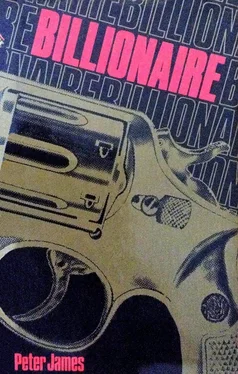
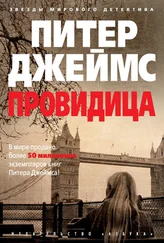
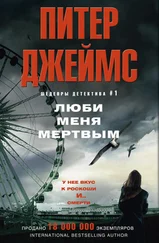
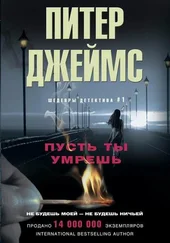

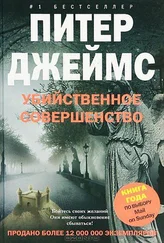

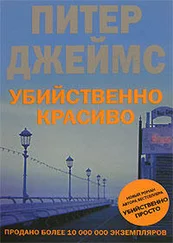


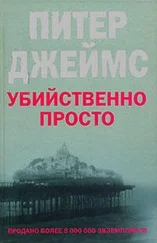
![Питер Джеймс - Искушение [litres]](/books/423638/piter-dzhejms-iskushenie-litres-thumb.webp)
![Питер Джеймс - Wish You Were Dead [story]](/books/430350/piter-dzhejms-wish-you-were-dead-story-thumb.webp)